
Cockroach Control in Duval County, FL
If you're a resident of Duval County, Florida, you're no stranger to the challenges posed by cockroaches. Our warm, humid climate and bustling urban areas create an ideal environment for these persistent pests. From the historic neighborhoods of Riverside to the coastal communities of Jacksonville Beach, cockroaches can turn your dream home into a nightmare.
Duval County's unique blend of urban and natural landscapes, including the expansive Timucuan Ecological and Historic Preserve, provides ample hiding spots for cockroaches. Whether you're dealing with American cockroaches in your downtown Jacksonville apartment or German cockroaches in your Neptune Beach bungalow, it's crucial to address the problem swiftly and effectively.
Don't let these unwelcome guests take over your home. If you're facing a cockroach infestation, it's time to take action. Call All U Need Pest Control at (888) 239-Bugs (888-239-2847) for expert assistance tailored to Duval County's specific pest challenges. Our professional team understands the local environment and can help you reclaim your space from these resilient invaders.
Pest Control Services in Duval County, FL
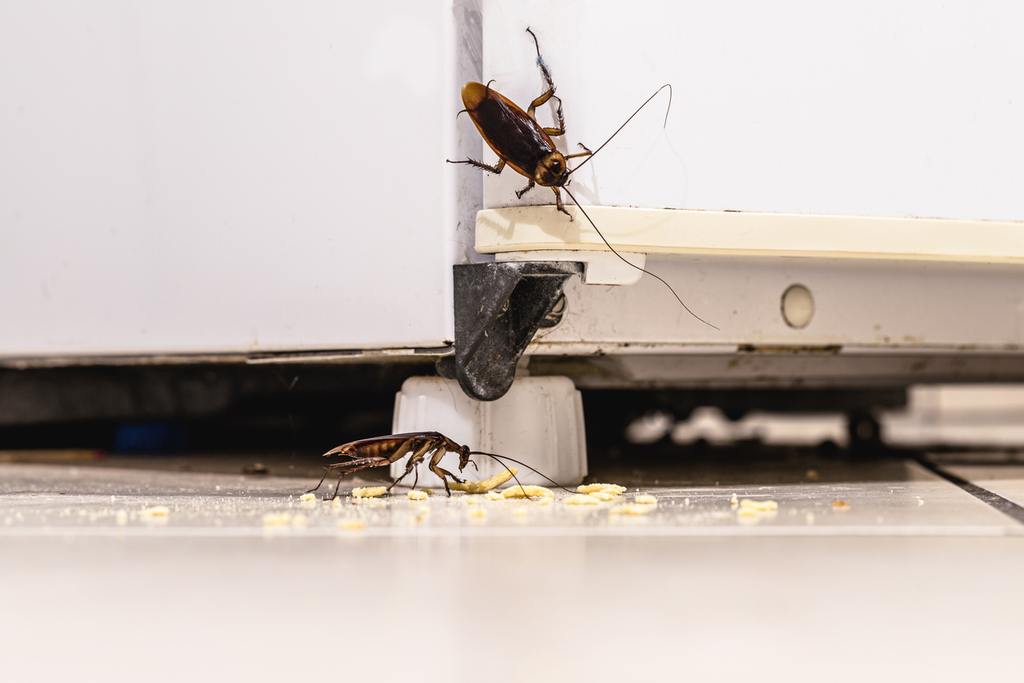
How to Get Rid of Cockroaches in Duval County, FL
Dealing with cockroaches in Duval County requires a multi-faceted approach. Our subtropical climate, with its hot summers and mild winters, creates ideal conditions for year-round cockroach activity. To effectively combat these pests, you’ll need to employ a combination of strategies tailored to our local environment.
Cockroach Baiting
One of the most effective methods for controlling cockroaches in Duval County homes is baiting. This technique involves strategically placing pesticide-infused bait stations in areas where cockroaches are likely to frequent. In our humid climate, you’ll want to focus on moisture-prone areas like kitchens, bathrooms, and laundry rooms.
Baiting is particularly effective because it targets the entire cockroach population, not just the ones you see. When a cockroach consumes the bait, it returns to its nest and spreads the pesticide to others through its droppings and body. This creates a domino effect, gradually reducing the entire infestation.
In Duval County, where American and German cockroaches are common, you’ll want to use baits specifically formulated for these species. Place bait stations under sinks, behind appliances, and in dark corners where cockroaches tend to hide. Remember to keep baits out of reach of children and pets.
Cockroach Insecticide
While baiting is an excellent long-term strategy, sometimes you need a more immediate solution. This is where insecticides come in handy. In Duval County’s warm climate, cockroaches can reproduce rapidly, making quick action crucial.
When choosing an insecticide, opt for products designed to combat our local cockroach species. Look for formulations that can withstand our high humidity levels without losing efficacy. Residual sprays can be particularly effective, as they continue to work long after application, providing ongoing protection against new cockroaches entering your home.
Focus your insecticide application on areas where cockroaches are likely to enter your home, such as around doors, windows, and utility penetrations. In older Duval County homes, pay special attention to cracks and crevices in walls and floors, as these can serve as entry points and hiding spots for cockroaches.
Remember, while insecticides can be effective, they should be used cautiously and in conjunction with other control methods. Always follow the product instructions carefully and consider professional application for the safest and most effective results.
Integrated Pest Management Strategies
To truly get a handle on cockroach infestations in Duval County, you’ll need to adopt an Integrated Pest Management (IPM) approach. This comprehensive strategy combines various control methods with prevention techniques to create a long-term solution tailored to our local conditions.
Start by identifying and eliminating the factors that make your home attractive to cockroaches. In our humid climate, moisture control is crucial. Fix any leaky pipes, use dehumidifiers in damp areas, and ensure proper ventilation throughout your home. This is especially important in coastal areas like Atlantic Beach or Mayport, where high humidity is a constant challenge.
Next, focus on sanitation. Regularly clean up food debris, store food in airtight containers, and keep your home clutter-free. This reduces food sources and hiding spots for cockroaches. In Duval County’s warm climate, even small amounts of food can quickly attract pests, so diligence is key.
Seal potential entry points to prevent new cockroaches from entering your home. This includes caulking cracks and crevices, repairing damaged window screens, and installing door sweeps. Given our mild winters, cockroaches can remain active year-round, making exclusion an ongoing process.
Finally, incorporate natural predators and repellents into your strategy. Encourage natural cockroach predators like lizards and geckos in your yard. You can also use natural repellents like bay leaves or cucumber slices in problem areas.
By combining these IPM strategies with baiting and targeted insecticide use, you’ll create a comprehensive approach to cockroach control that’s well-suited to the unique challenges of Duval County.
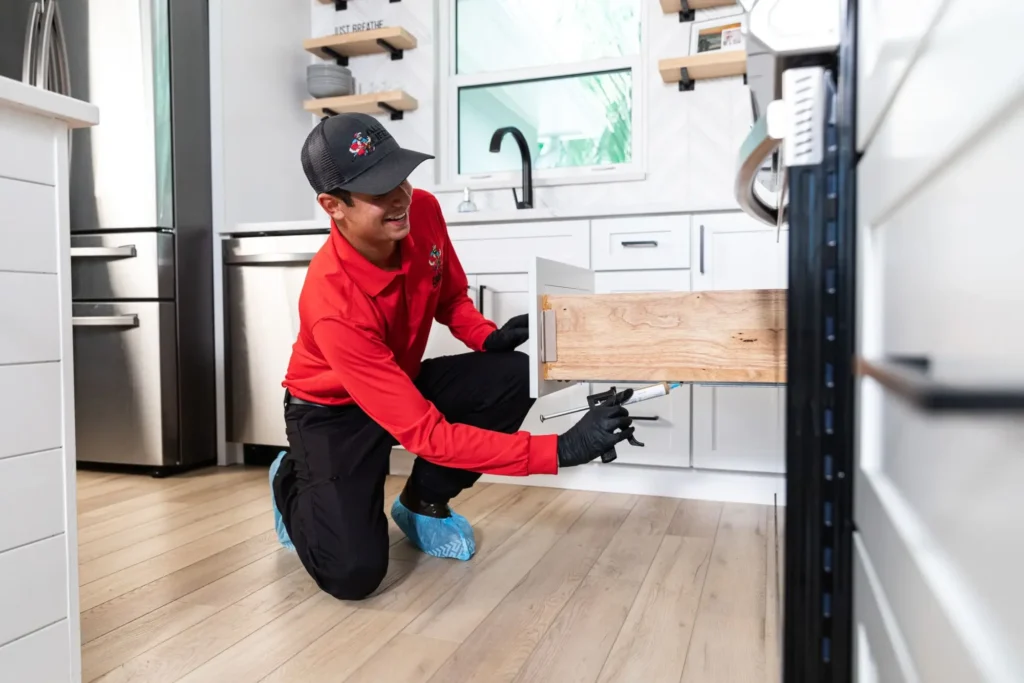
Cockroach Treatment in Duval County, FL
When it comes to treating a cockroach infestation in Duval County, it’s essential to tailor your approach to our local conditions. Our warm, humid climate means that cockroaches can be active and breeding year-round, requiring a persistent and comprehensive treatment plan.
Start by conducting a thorough inspection of your property. In Duval County, pay special attention to areas that provide moisture and shelter, such as crawl spaces, attics, and areas around air conditioning units. These spots are particularly attractive to cockroaches in our climate.
Next, implement a multi-pronged treatment approach. This typically involves a combination of baiting, insecticide application, and habitat modification. In Duval County’s older neighborhoods like San Marco or Avondale, where homes may have more cracks and crevices, you’ll want to focus on sealing potential entry points as part of your treatment plan.
Don’t forget to address outdoor areas as well. In our subtropical climate, cockroaches often live outside and enter homes in search of food and water. Treat the perimeter of your home, paying special attention to areas where vegetation touches the structure.
Remember, effective cockroach treatment in Duval County is an ongoing process. Our climate allows for rapid reproduction, so regular follow-up treatments and monitoring are crucial to prevent reinfestation.
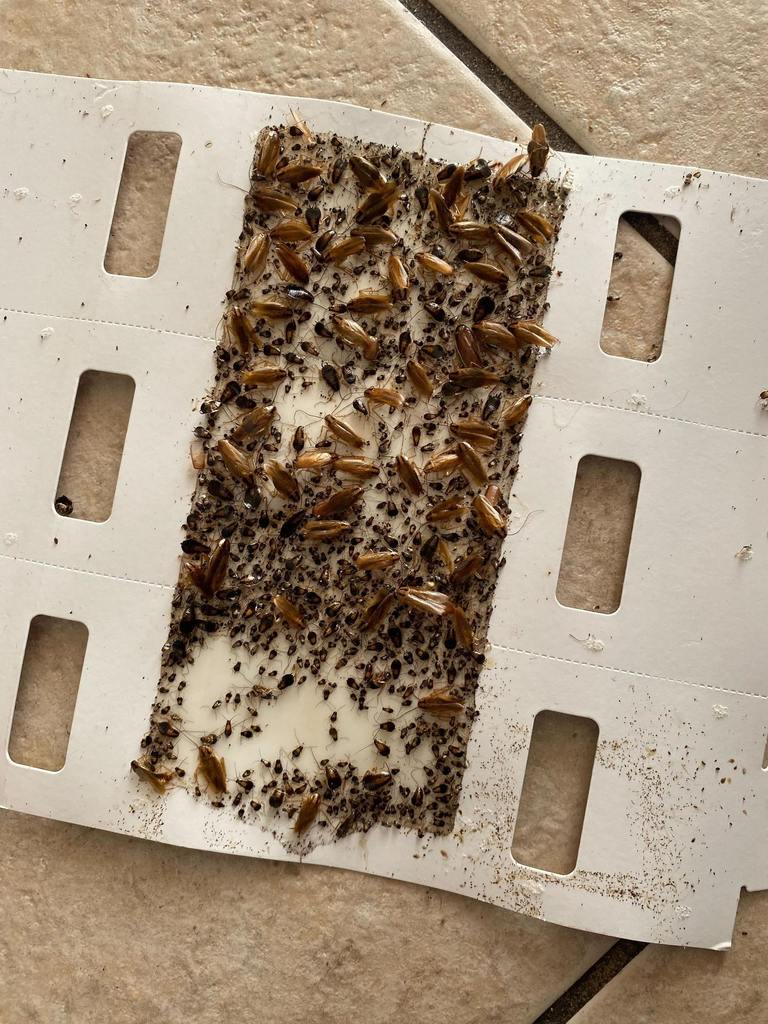
Signs of a Cockroach Infestation in Duval County, FL
Recognizing the signs of a cockroach infestation early can help you address the problem before it gets out of hand. In Duval County, where our climate supports year-round cockroach activity, being vigilant is crucial. Here are some key indicators to watch for:
- Live or dead cockroaches The most obvious sign is seeing cockroaches themselves. In Duval County, you’re most likely to spot American or German cockroaches.
- Droppings Cockroach droppings resemble coffee grounds or black pepper. In our humid climate, you might notice these more frequently in bathrooms or kitchens.
- Egg cases Look for small, brown, oval-shaped cases in hidden areas. In Duval County’s warm weather, cockroaches can reproduce quickly, so finding egg cases is a serious concern.
- Musty odor A strong, oily smell can indicate a large infestation. This odor might be more noticeable in enclosed spaces like closets or cabinets.
- Smear marks Dark, irregular smears on walls or floors, particularly in corners or along edges, can indicate cockroach travel paths.
- Cast skins As cockroaches grow, they shed their exoskeletons. Finding these shed skins is a clear sign of an active infestation.
- Damage to food packaging or books Cockroaches may chew through packaging or paper products, leaving behind jagged edges or small holes.
In Duval County, it’s important to be especially watchful during our rainy season (June to September), as increased moisture can drive cockroaches indoors. Also, be alert for signs in outdoor living spaces like patios or pool areas, which are common features in our area and can harbor cockroaches.
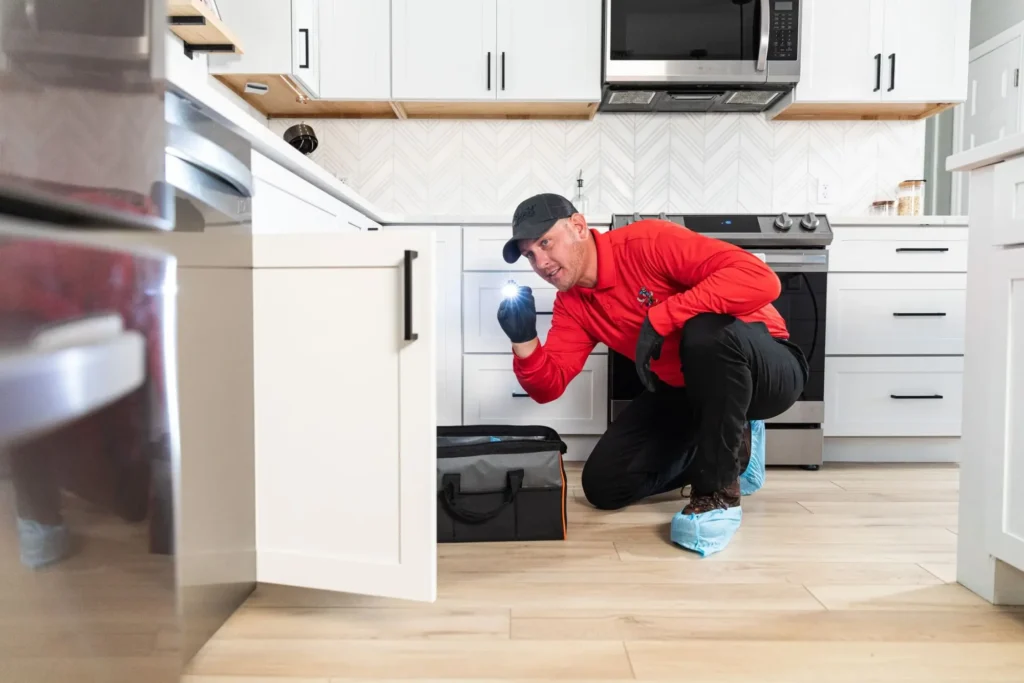
How to Check Your Duval County Home for Cockroaches
Conducting regular inspections of your Duval County home is crucial for early detection and prevention of cockroach infestations. Here’s a step-by-step guide to help you thoroughly check your home:
- Start in the kitchen Begin your inspection in the heart of your home. Check under and behind appliances, inside cabinets, and along baseboards. In our humid climate, pay extra attention to areas near the sink and dishwasher.
- Move to the bathroom Examine under sinks, behind toilets, and around shower areas. The high moisture in these areas makes them prime cockroach habitats in Duval County homes.
- Inspect other rooms Don’t neglect bedrooms, living areas, and closets. Look in dark corners, behind furniture, and inside storage areas.
- Check utility areas Laundry rooms, garages, and utility closets can be cockroach hotspots. Inspect around water heaters and washing machines.
- Examine entry points In Duval County, where our mild climate allows for year-round pest activity, check around doors, windows, and utility penetrations for potential cockroach entry points.
- Don’t forget the outdoors Inspect your yard, focusing on areas close to the house. Check mulch beds, woodpiles, and areas with dense vegetation, which are common in our lush Florida landscapes.
- Use a flashlight Cockroaches are nocturnal, so using a flashlight can help you spot them in dark areas.
- Set up sticky traps Place these in suspected problem areas to monitor for cockroach activity.
- Check at night Since cockroaches are most active after dark, consider doing a nighttime inspection, especially in kitchens and bathrooms.
- Look for signs Remember to look for all the signs mentioned earlier, not just the cockroaches themselves.
In Duval County, it’s wise to conduct these inspections regularly, especially during our warm, humid months when cockroach activity peaks. By staying vigilant, you can catch infestations early and prevent them from becoming major problems.
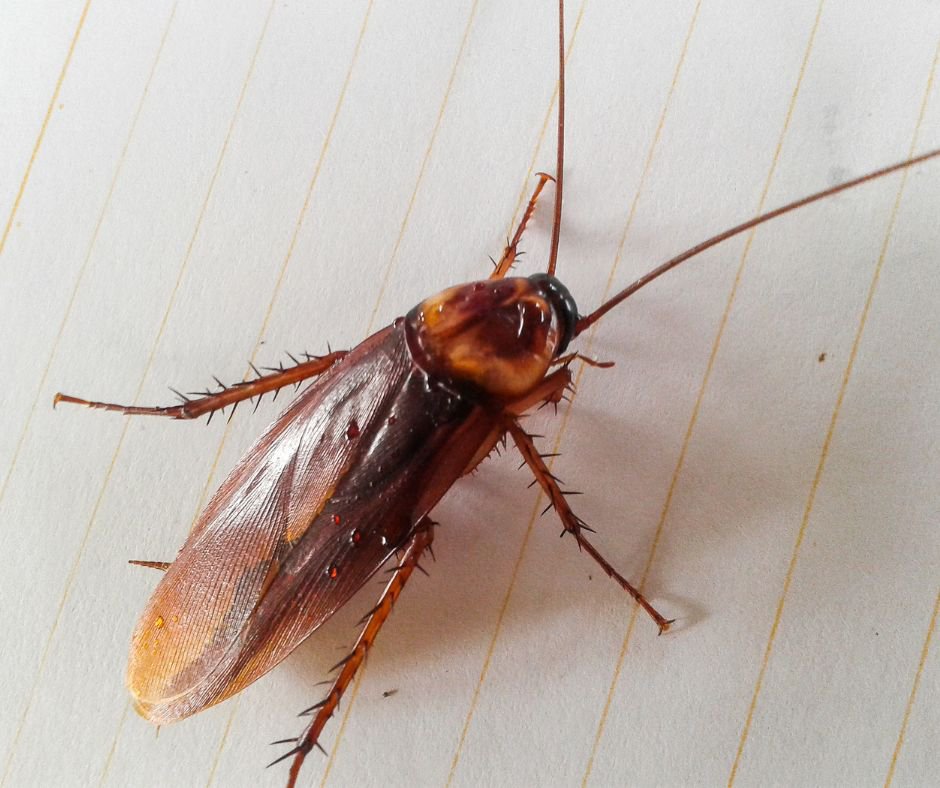
What Do Cockroaches Look Like in Duval County, FL?
In Duval County, you’re likely to encounter several species of cockroaches. Knowing what each species looks like can help you identify the type of infestation you’re dealing with and choose the most effective control methods.
Smoky Brown Cockroach
The smoky brown cockroach is a common sight in Duval County, especially in wooded areas and around the many parks and preserves in our region. These cockroaches measure about 1.25 to 1.5 inches long and have a mahogany or dark brown color with a smooth, shiny appearance. They are equipped with wings that extend beyond their body length. While often found outdoors, these cockroaches can invade homes, especially during dry spells. In Duval County’s humid climate, you might spot these cockroaches more frequently around your outdoor lighting or entering your home through small cracks and crevices.
American Cockroach
The American cockroach, also known as the palmetto bug, is one of the largest cockroach species you’ll encounter in Duval County. They’re particularly common in our coastal areas. These cockroaches measure 1.5 to 2 inches in length and have a reddish-brown color with a yellowish figure-eight pattern on the back of the head. Both males and females have fully developed wings. American cockroaches prefer warm, moist environments. In Duval County, you’re likely to see these cockroaches in basements, crawl spaces, and around drainage pipes. They’re also common in our many historic buildings and older homes.
Australian Cockroach
While less common than American or German cockroaches, the Australian cockroach can be found in Duval County, particularly in greenhouses and areas with lots of vegetation. These cockroaches measure about 1 to 1.25 inches long and are dark brown with light yellow edges on the thorax and wings. They are similar in appearance to American cockroaches but slightly smaller. Australian cockroaches are often found outdoors but can enter homes in search of food and water. In our subtropical climate, you might encounter these cockroaches more frequently in your garden or around potted plants.
German Cockroach
The German cockroach is the most common indoor cockroach species in Duval County. They’re particularly problematic in multi-unit housing and restaurants. These cockroaches are small, typically measuring 0.5 to 0.6 inches long, and are light brown to tan with two dark parallel stripes running from head to wings. German cockroaches are fast reproducers, making infestations difficult to control. They are often found in kitchens and bathrooms where moisture is abundant. In Duval County’s warm climate, German cockroach populations can explode quickly if not addressed promptly.
Florida Woods Cockroach
Also known as the palmetto bug (like the American cockroach), the Florida Woods cockroach is native to our region. In Duval County, you might encounter these cockroaches measuring about 1 to 1.5 inches long and dark brown to black in color. Their wings don’t quite cover their entire body. Florida Woods cockroaches are primarily found outdoors in wooded areas, but occasionally enter homes. These cockroaches are particularly common in areas near the Timucuan Ecological and Historic Preserve or other wooded parts of Duval County.
Remember, in our warm, humid climate, cockroaches can be active year-round. Being able to identify the species you’re dealing with can help you tailor your control efforts more effectively.
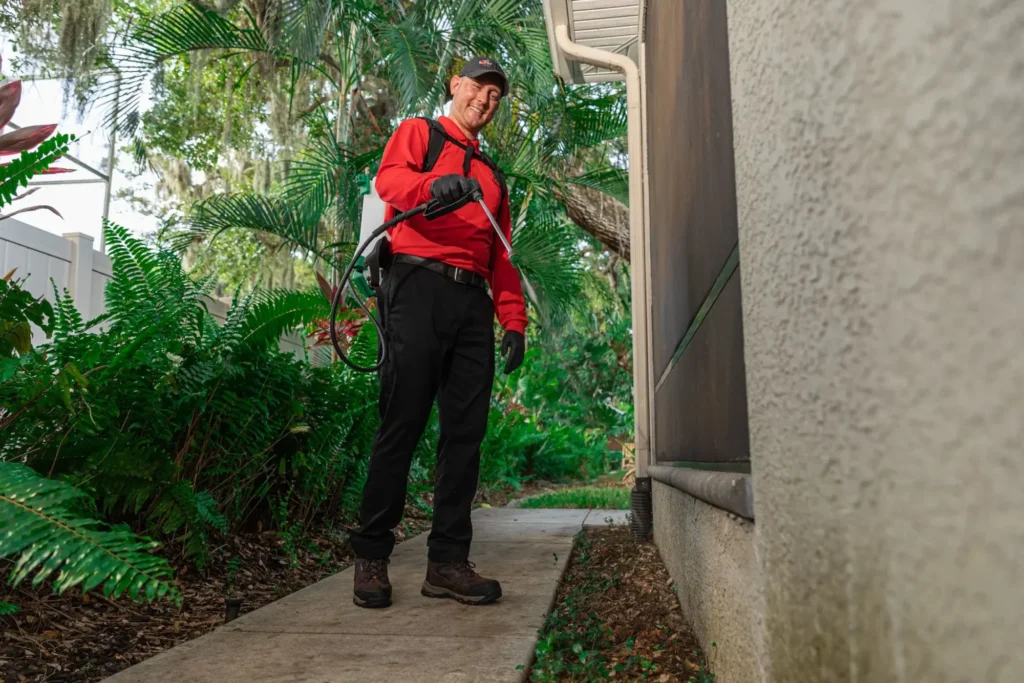
Eco-friendly Solutions for Cockroach Control
In Duval County, where we’re surrounded by sensitive ecosystems like the St. Johns River and numerous coastal habitats, eco-friendly cockroach control solutions are not just preferable – they’re essential. Here are some environmentally conscious ways to manage cockroach infestations:
- Diatomaceous Earth This natural powder is made from fossilized algae and works by dehydrating cockroaches. Sprinkle it in areas where you’ve seen cockroach activity. In our humid climate, you may need to reapply more frequently than in drier regions.
- Boric Acid Another natural option, boric acid is toxic to cockroaches but has low toxicity for humans and pets when used correctly. Mix it with sugar to attract cockroaches and place in areas out of reach of children and animals.
- Catnip Studies have shown that catnip can be an effective cockroach repellent. Grow it around your home or use catnip tea bags in problem areas.
- Cucumber Slices Cockroaches dislike the smell of cucumbers. Place slices in areas where you’ve seen cockroach activity.
- Bay Leaves The strong scent of bay leaves can deter cockroaches. Place whole leaves in cabinets, under the refrigerator, and in other cockroach-prone areas.
- Proper Food Storage Use airtight containers for food storage to eliminate cockroach food sources. This is particularly important in our warm climate where food can spoil quickly.
- Regular Cleaning Maintain a clean home by vacuuming regularly, wiping down surfaces, and keeping your kitchen free of crumbs and spills.
- Fix Leaks In Duval County’s humid environment, controlling moisture is crucial. Repair any leaky pipes or faucets promptly.
- Natural Predators Encourage natural cockroach predators in your yard, such as lizards and birds. Creating a diverse ecosystem can help keep cockroach populations in check.
Remember, while these eco-friendly solutions can be effective, severe infestations may require professional intervention. Always consider the safety of your family and pets when implementing any pest control measures.
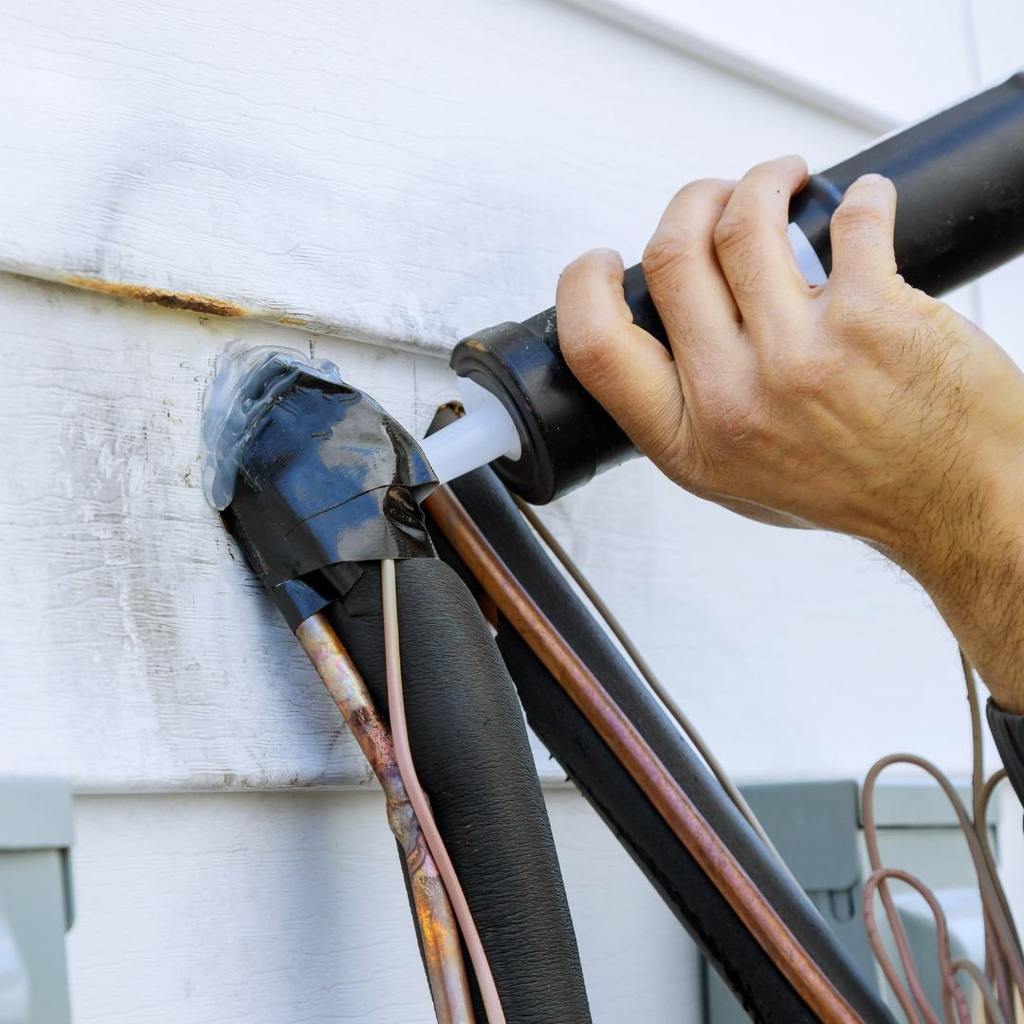
Preventing Cockroaches in Duval County, FL
Preventing cockroach infestations in Duval County requires a proactive approach tailored to our unique climate and environment. Here are some effective strategies to keep these pests at bay:
- Seal Entry Points Inspect your home’s exterior for cracks, gaps, and holes. Pay special attention to areas where utilities enter your home. In our coastal areas, be vigilant about openings that might develop due to salt air corrosion.
- Control Moisture Given Duval County’s high humidity, moisture control is crucial. Use dehumidifiers in damp areas, fix leaky pipes promptly, and ensure proper ventilation in bathrooms and kitchens.
- Proper Food Storage Store food in airtight containers and clean up spills immediately. In our warm climate, even small amounts of food can quickly attract cockroaches.
- Regular Cleaning Maintain a consistent cleaning routine. Vacuum and sweep regularly, paying attention to hard-to-reach areas where crumbs might accumulate.
- Manage Outdoor Areas Keep your yard tidy by removing leaf litter, trimming vegetation away from your home’s foundation, and storing firewood away from the house. This is particularly important in our lush Florida landscapes.
- Inspect Incoming Items Before bringing boxes, groceries, or secondhand items into your home, check them for signs of cockroaches.
- Use Weatherstripping Install weatherstripping on doors and windows to create a tight seal. This is especially important during our rainy season when cockroaches may seek shelter indoors.
- Proper Waste Management Keep garbage in sealed containers and dispose of it regularly. In our warm climate, garbage can quickly become a breeding ground for pests.
- Address Standing Water Eliminate sources of standing water around your property, including in potted plants, birdbaths, and clogged gutters.
- Regular Inspections Conduct routine checks of your home, paying special attention to dark, warm, and moist areas where cockroaches are likely to hide.
- Natural Repellents Use natural repellents like bay leaves or cucumber slices in problem areas.
- Professional Prevention Consider regular professional pest control services for preventive treatments, especially if you live in an area of Duval County known for cockroach problems.
By implementing these prevention strategies, you can significantly reduce the likelihood of a cockroach infestation in your Duval County home. Remember, in our climate, prevention is an ongoing process, so stay vigilant year-round.
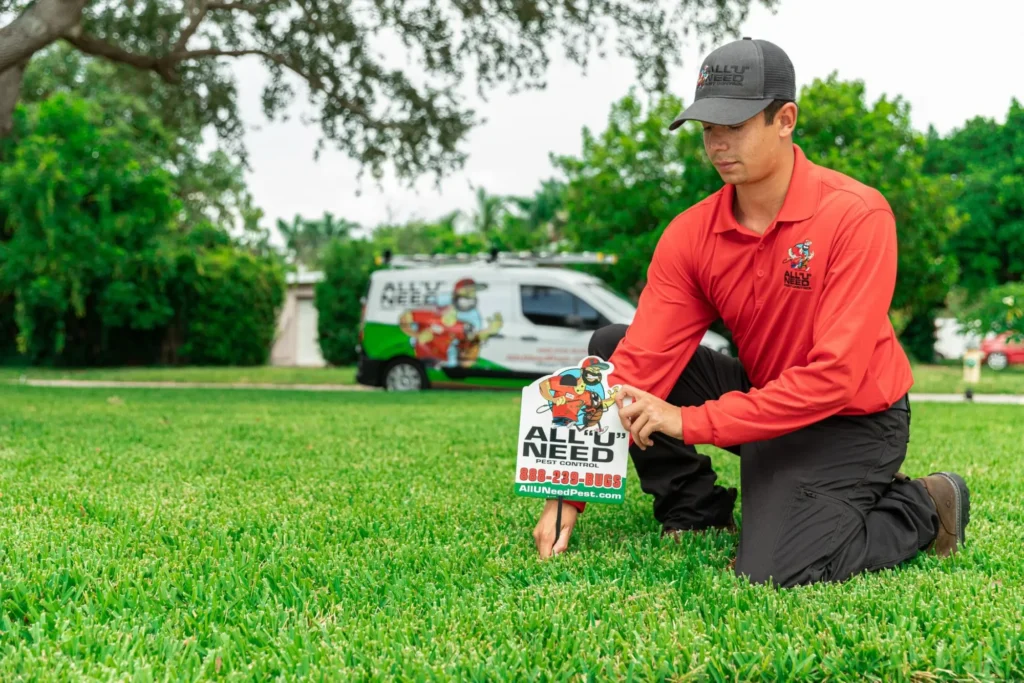
Exterminate Cockroaches From Your Duval County Home with All U Need Pest Control
Living in Duval County means enjoying beautiful beaches, lush landscapes, and a vibrant community. But it also means dealing with the persistent challenge of cockroaches. Don’t let these resilient pests turn your Jacksonville dream home into a nightmare.
At All U Need Pest Control, we understand the unique pest control challenges faced by Duval County residents. Our team of experts is well-versed in the behavior of local cockroach species and the most effective, eco-friendly methods to eliminate them. We tailor our approach to your specific situation, whether you’re dealing with American cockroaches in your Riverside bungalow or German cockroaches in your Atlantic Beach condo.
We’re committed to providing safe, effective, and environmentally responsible pest control solutions. Our methods are designed to protect your family and pets while effectively eliminating cockroach infestations. We don’t just treat the symptoms; we work with you to implement long-term prevention strategies that keep your home cockroach-free year-round.
Don’t let cockroaches take over your Duval County home. Take the first step towards a pest-free living environment today. Contact All U Need Pest Control for a comprehensive cockroach inspection and customized treatment plan. Our team is ready to help you reclaim your space from these persistent invaders.
Remember, in Duval County’s warm, humid climate, cockroach problems can escalate quickly. Don’t wait until the problem becomes overwhelming. Call us now at (888) 239-Bugs (888-239-2847) to schedule your consultation and take control of your pest situation. With All U Need Pest Control, you’re not just getting a service; you’re gaining a partner in maintaining a clean, safe, and cockroach-free home in beautiful Duval County.
Location Contact:
4949 Sunbeam Road Unit 16 Jacksonville FL, 32257
Get Directions for 4949 Sunbeam Road Unit 16Jacksonville FL, 32257 on Google Maps904-712-1989
Call All "U" Need Pest Control